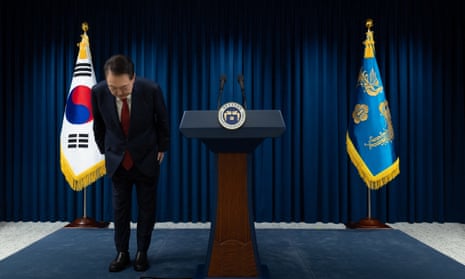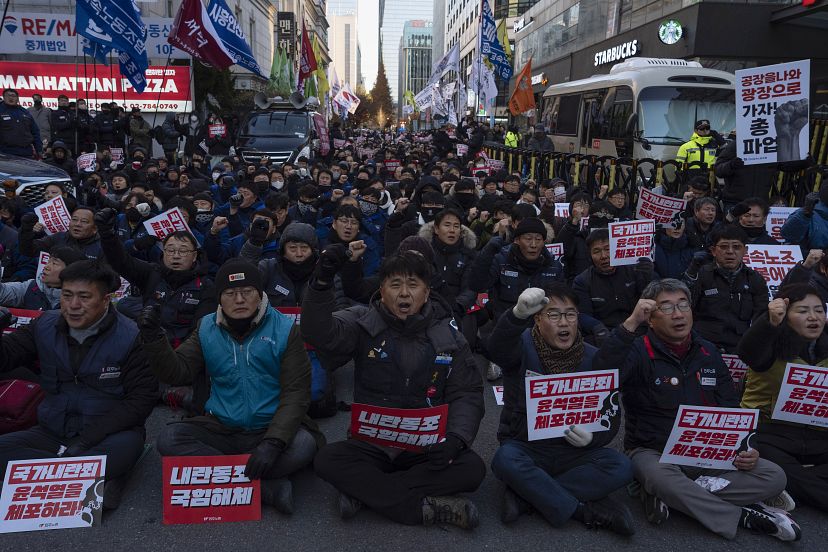South Korean President Yoon Suk Yeol Apologizes for Attempting to Impose Martial Law
On Saturday morning, President Yoon Suk Yeol stated that he would not evade legal or political responsibility for declaring martial law and pledged never to attempt such an action again.
Yoon’s controversial move came just days before a critical vote on whether to impeach him, triggered by his attempts to exert greater control over a parliament dominated by the opposition. In his martial law declaration on Tuesday, Yoon referred to the National Assembly as a "den of criminals" and vowed to purge "shameless North Korea followers and anti-state forces." This move was seen by many as an overreach, and the National Assembly quickly moved to vote against it, with the military eventually pulling back after special forces surrounded parliament and helicopters hovered overhead.
The drama intensified as opposition lawmakers, who brought forward the impeachment motion, accused Yoon of attempting a self-coup. They cited his martial law order and allegations of rebellion as grounds for impeachment. The opposition, which holds 192 of the 300 parliamentary seats, requires at least eight votes from the PPP to succeed in removing Yoon from office. As of now, it remains uncertain whether they will secure the necessary support, especially after PPP leader Han Dong-hun called for Yoon's resignation, though the party remains opposed to impeachment.
If Yoon is impeached, his powers would be suspended until the Constitutional Court rules on his removal, leading to a presidential election within 60 days. Meanwhile, protests have flared up in Seoul, with thousands of citizens demanding his resignation.
In the wake of the martial law declaration, allegations have emerged that Yoon ordered the detention of key opposition figures, including Han Dong-hun, Lee Jae-myung, and National Assembly Speaker Woo Won Shik, accusing them of anti-state activities. These claims are currently under investigation by the South Korean authorities, with the Defense Ministry suspending several officials linked to the military's involvement in enforcing martial law. Yoon’s former Defense Minister Kim Yong Hyun, who reportedly suggested the declaration, has also been placed under investigation for rebellion.
As the situation unfolds, South Korea faces a deepening political crisis, with key diplomatic allies such as the United States and Japan closely watching the developments. Yoon’s actions, which have divided his party and sparked protests, have left South Korea at a crossroads, with the potential for significant political upheaval in the coming days.


Comments
Post a Comment